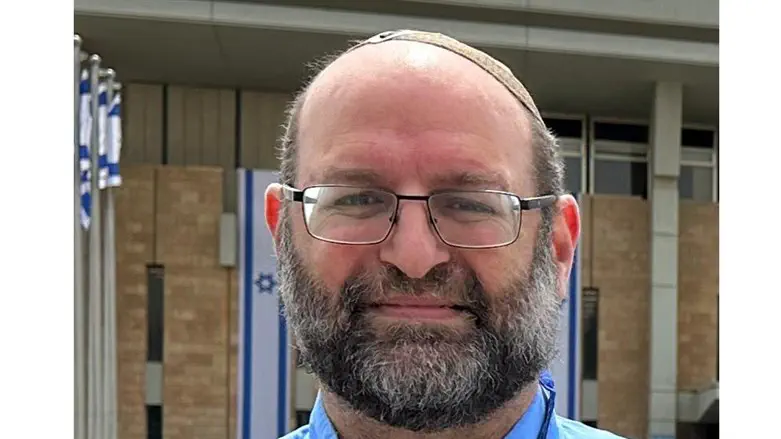
This week's Dvar Torah is by Rabbi Yeroham Simsovic,former Rav shaliach in Oxford (2006-2007) and is currently teaching at Yeshivat Horev in Jerusalem
In the issue of Isaac’s blessings to his sons, there is a common mistake made when it is asserted that Jacob received the benediction of the firstborn deceptively.
The meaning of the term “firstborn” as we know it today isn't necessarily the same as it was in the time of the Bible. A firstborn isn't just the first child to be born and having as such special rights. The firstborn is the successor of his father and has therefore special responsibilities.
Esau testifies about himself that he is not interested in this task: “Behold, I am at the point to die; and what profit shall the birthright do to me?”. What Jacob wants and Esau accepts is to be the continuator of Isaac and therefore to be the one who will continue the effort of the engenderment (תולדות) as they are manifested with Abraham to whom it was said “and you'll be blessed”.
Isaac had hoped that cooperation would be possible between his two sons. Esau chose to be the man of earth and action, “matter and fact” with an emphasis on matter. But being a man of this world is not wrong in itself. This world needs people to take care of it. Esau could have been the just and righteous of this world. To help him with this task Isaac wanted to give him the corresponding needed blessing: “So God give thee of the dew of heaven, and of the fat places of the earth, and plenty of corn and wine.” And he will share with his brother and so there will be existence to them both in the world.
Jacob chose to be the man of the spirituality, he can be the just of the world to come, and will receive also the blessing appropriate to him, and would share with his brother and so there will be existence to them both in the world to come (like Issachar & Zebulon later on), that was what Isaac thought.
But Rebecca who saw and recognized the truth interferes. She knows that indeed Esau chose this world, but not as a righteous but as a wicked, and therefore under the rule of Esau Jacob wouldn’t survive. And to save them both, she decided to compel Jacob to take on himself the double task, to connect heaven and earth and thus give a chance for hope, because in Jacob’ sworld there is hope even for Esau.
Isaac keeps neutrality. He sends Esau away to allow the events to happen, but when they do, he warns: “The voice is the voice of Jacob, and the hands are the hands of Esau”. The first voice is written in Hebrew קל without the letter 'ו', (meaning also to lessen, to make light) while the second is written קול, saying: If you'll lessen the voice of Jacob, then only the hand of Esau will remain, from one hand you are not a free man to leave your mission, and you have to take on yourself the yoke of this material world, in addition to the yoke that is preserved to you to be the continuator of Abraham, but you have to be aware of its dangers.
But the blessing of the firstborn, the blessing of the continuator of Abraham, Esau can't receive, although he asks for it when asking his father: “Hast thou but one blessing, my father? bless me, even me also, O my father.” You have still one blessing that you keep to give later on, the blessing of Abraham, give it to me now that Jacob took my share and duty, give me his blessing. But Isaac can't accept that it is not intended for Esau, this blessing he is keeping to give to Jacob.
That’s why when Isaac sends Jacob to take for himself a wife, he gives him the blessing of the firstborn, the blessing of Abraham: “And God Almighty bless thee, and make thee fruitful, and multiply thee, that thou mayest be a congregation of peoples; and give thee the blessing of Abraham, to thee, and to thy seed with thee; that thou mayest inherit the land of thy sojournings, which God gave unto Abraham.” He is the one to continue the efforts of the engenderment, until the the completed and Mended Human Being is finally born.
For comments: yeroham.simsovic@gmail.com
Torah MiTzion stands in the forefront of the battle for the future of the Jewish people in the Diaspora, offering religious-Zionist Torah scholarship to Jewish communities throughout the world and strengthening the bond between the Jewish people in the Diaspora and in Israel via the study of Torah.